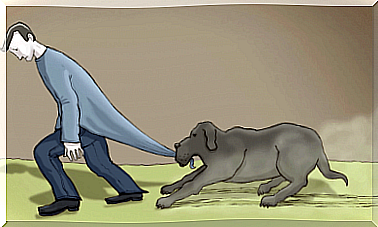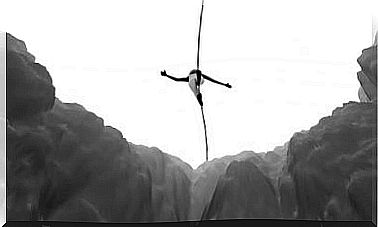On The Verge Of Retirement: What Will Become Of My Life?

Retirement is one of those paradoxical moments where a gigantic achievement and a great loss come together. Precisely for this reason it is not uncommon for many people to feel puzzled at that point where the work cycle ends and a stage of stability begins, but also with many questions.
In a strict sense, retirement is defined as the definitive cessation of active working life , due to age or health conditions that prevent continuing with work. The impact this causes on a person depends on many factors. However, in all cases it is a vital transformation.
The labor dimension is one of the axes on which our life is built. We basically organize our routines around work. This determines our schedules, our time. And timing is everything. It also sets our goals, decisively influences our self-concept and our feeling of success or failure in life. That is why retirement, as a vital turning point, deserves to be the beginning of a good plan.

Retirement, a multi-stage process
During the retirement process there are several stages. Each of them represents a step forward on the road to adaptation to new living conditions. It is certainly not an easy path. However, it becomes easier when there is enough information to deal with what is coming.
The phases in the retirement process are as follows:
- Early retirement. It corresponds to the stage in which the person begins to get used to the idea that their working life is going to end. Fuzzy ideas appear about what will be behind that point.
- Novelty. Once the person leaves his job, the usual thing is that an enthusiasm appears to have much more time to enjoy.
- Disappointment. It usually appears after a month or two after retirement. Depression, hyperactivity and anxiety alternate. The new life does not seem to fulfill the expectations generated.
- Reorientation. It is a phase in which the expectations that were in front of this new stage of life are readjusted. You rethink the situation and set goals and purposes in a more realistic way.
- Adaptation. It includes the stage in which new routines are organized and a new life project is designed in the short and long term based on the new conditions in which one lives.
Not all people go through the stages as they have been described. Some are already very clear about what they are going to do when they retire and do not present many ups and downs. Others, on the other hand, enter this stage very confused, without knowing very well what to do or expect from that moment on.

How to properly approach retirement?
The change of schedules, routines and environment, to a greater or lesser extent, will give way to a new vital disposition. Retirement usually demands a lesser activity, but paradoxically also a greater initiative, at least for the construction of a new routine. We can also attend a grieving process for the spaces that were left, the coworkers that have ceased to be so and the tasks that will no longer be carried out.
Despite all this, one must not lose sight of the fact that retirement is also a great achievement. If handled properly it can lead to a beautiful stage in life, in which it is possible to find new ways to achieve other achievements. There are a few steps that help give this experience a positive meaning:
- Thoroughly prepare for retirement. The preparation begins during the last year of work and does not consist in rambling about the future, but in analyzing the alternatives that this new stage of life presents.
- Make a list in which you enter everything you would like to do. This includes large, medium, and small dreams. We are talking about an inventory in which there is room for everything that has been stopped due to lack of time.
- Active early retirement. You do not have to wait to retire to start developing the projects that you have thought for after this moment. Start them one or two years before the final goodbye to work.
- Strengthen social relationships. Post-retirement is a great time for friendship. Surely there are many people who are in a similar condition to yours and it may be a good idea to spend more time caring for the people around you.
- Shift focus. Don’t hold on to the past, look ahead. What went, went. It is best to focus on what is coming, fueling enthusiasm for what you can do.
No great transformation of life occurs without some emotional pain, without some suffering we could say. You have to be aware of it. Also that retirement brings with it aspects of life that are new and exciting if we adopt an open attitude and explore them.









